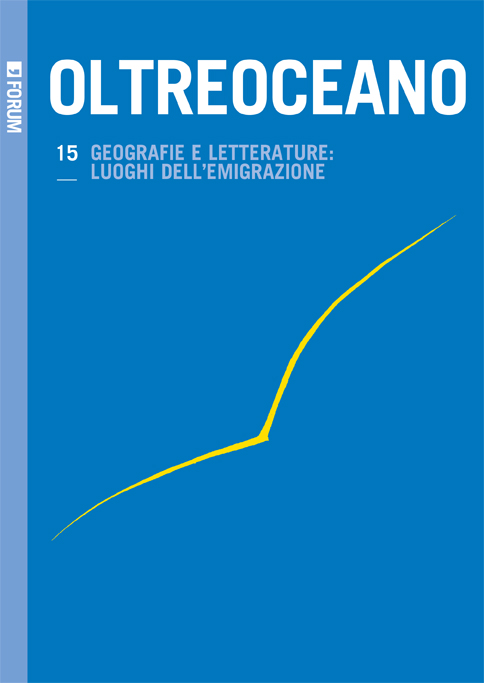Regreso y melancolía. Medellín y San Salvador en Fernando Vallejo y Horacio Castellanos Moya
Keywords:
Fernando Vallejo, Castellanos Moya, regreso, melancolíaAbstract
El estudio quiere analizar la relación entre el lenguaje y la (re)construcción de los ‘espacios del regreso’ en La Virgen de los sicarios de Fernando Vallejo y El asco: Thomas Bernhard en San Salvador de Horacio Castellanos Moya. Las novelas cuestionan una visión esperanzada y consoladora del regreso y la noción estereotipada de la identidad a partir de la actitud melancólica de los dos protagonistas que se sitúan fuera de la nación y de la colectividad.
Return and Melancholy. Medellín and San Salvador in Fernando Vallejo and Horacio Castellanos Moya
This study intends to examine the relation between language and the (re)construction of the ‘spaces of homecoming’ in Fernando Vallejo’s La Virgen de los sicarios and Horacio Castellanos Moya’s El asco: Thomas Bernhard en San Salvador. The novels question a hopeful and consoling vision of the return and the stereotyped notion of identity beginning with the melancholic attitude of the protagonists who are located outside the nation and the community.
Ritorno e malinconia. Medellín e San Salvador in Fernando Vallejo e Horacio Castellanos Moya
Lo studio si propone di analizzare la relazione tra linguaggio e (ri)costruzione degli ‘spazi del ritorno’ in La Virgen de los sicarios di Fernando Vallejo ed El asco: Thomas Bernhard en San Salvador di Horacio Castellanos Moya. I due romanzi mettono in discussione una visione consolatoria del ritorno e una nozione stereotipata dell’identità, a partire dalla prospettiva malinconica dei due protagonisti che si collocano fuori dalla nazione e dalla collettività.
Downloads
References
Aínsa, F. (2012): Palabras nómadas. Nueva cartografía de la pertenencia. Madrid: Iberoamericana Vervuert.
Aristotele (2004): Problemas. Trad. de E. Sánchez Millán. Madrid: Gredos.
Bernhard, T. (1992): Extinción. Un desmoronamiento. Madrid: Alfaguara.
Castellanos Moya, H. (2007): El asco. Thomas Bernhard en San Salvador. Barcelona: Tusquets.
Freud, S. (1993): Duelo y melancolía. En S. Freud, Obras completas, XIV (pp. 235-256). Buenos Aires: Amorrortu.
Jaramillo, M. M. (1988): Memorias insólitas. Gaceta, 42-43, pp. 9-25.
Manzoni, C. (2004): Fernando Vallejo y el arte de la traducción. Cuadernos hispanoamericanos, 651-652, pp. 45-56.
Manzoni, C. (2015): Poéticas del retorno. Las pesadillas del regreso en la cultura latinoamericana contemporánea. CELEHIS. Revista del Centro de Letras Hispanoamericanas, 29, pp. 161-179.
Mazzeo, M. (2012): Malinconia e rivoluzione. Roma: Editori Riuniti.
Vallejo, F. (1994): La Virgen de los sicarios. Bogotá: Alfaguara.
Downloads
Published
How to Cite
Issue
Section
License
Copyright (c) 2019 Oltreoceano - Rivista sulle migrazioni

This work is licensed under a Creative Commons Attribution-NonCommercial-ShareAlike 4.0 International License.
The authors undertake to comply with the following conditions, which are considered accepted at the time of submission of their contributions.
The sending of a text implies that it is unpublished and not submitted to be published elsewhere.
1. If accepted, the author shall confer on the publisher the right to publish and distribute it both in paper form and in the online electronic edition. The published articles will be downloadable and made available in open access.
2. Provided that it correctly indicates that the first publication took place in the journal Oltreoceano. Rivista sulle migrazioni the author has the right to: a) reproduce the article in separate extracts or collected in a volume; b) publish the article on their personal website or teaching site provided that these sites are of a non-commercial nature; c) deposit the article in online archives of a non-commercial nature, linked to the institution they belong to or as part of projects for the non-commercial dissemination and open access of scientific works.
The use of contributions by third parties, for commercial or otherwise unauthorized purposes, is not allowed. The publisher declines all responsibility for the unauthorized use of the material published in the journal.












